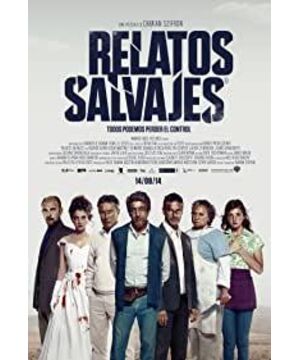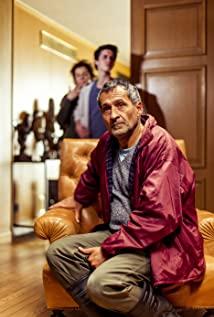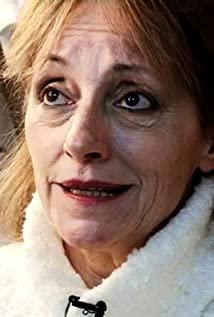Damian Sziforlong was born in 1975. Under the influence of his father, he watched "The Godfather" (The Godfather, 1972) when he was eight years old, and began to immerse himself in Hitchcock and Kubry at the age of nine. The world of images of grams. The American movies in the 1970s accompanied his growth and left him the most memorable impression. Since the end of the 1990s, Damian Szfron began to write film and television dramas and participated in the screenwriting of more than ten films. "Savage Story" is his third feature feature film directed by him. The first two works date back to "Deep Sea" (Fondo del mar, El, 2003) and "Tiempo de valientes" (Tiempo de valientes) about ten years ago. , 2005).
The film "Savage Story" is composed of six short films that are not directly related. They have different themes, different scenes, and different actors, but they have similar themes and elements: violence, revenge, loss of control, and black humor. The six stories are all written by the director and screenwriter Sziforlong. Although they are not all wonderful, they are rich in layers and have many highlights, allowing audiences of different tastes to choose their own favorites. Time magazine commented that it "gave the audience a kind of The feeling of reading a series of short stories co-authored by Ambrose Bells and Roald Dahl".
Although the title is barbaric, the film is all about the game between people in society. Modern civilized urban life has not changed people's barbaric nature, and the gene of violence is always hidden in fragile relationships. It is also a collection of short stories that reflect social issues through violence. Jia Zhangke's "A Touch of Sin" (2013) is the most frequently mentioned intertext by Chinese viewers of "Barbarian Story".
Compared with "Destined to Heaven", the most significant difference of "Barbarian Story" is reflected in the play. Almost every story has no less than three plot reversals. For example, in the third stage of the "no man's land" confrontation between two drivers, the good car owner first took the upper hand and humiliated the owner of the broken car, then experienced a flat tire trapped in the car and was retaliated by him. Another accident caused the tires to fly away and then fell into the river valley...The forces of the two sides rose and fell one after another, and the conflict intensified. Frequent accidents and coincidences highlight a strong sense of drama design, which Jia Zhangke obviously does not possess.
The first two works directed by Sziforlong, "Deep Ocean" and "Age of Brave" are action/comedy/crime, plot/thriller ("Barbarian Story" is comedy/drama/thriller), which can be said to be of genre origin . It is not difficult to explain the differences between the above plays (part of the film's photography and sound effects also refer to genre film techniques). At the same time, the geographical and historical background of the various stories in "The Barbaric Story" are more vague, more similar to fables rather than documents. In its tone, it appears comical and ironic. It uses romantic and brisk music several times in the tragedy scene, which is completely different from the deep and compassionate feelings of "Heaven Is Destined", which shoulders a sense of social responsibility.
The English title of "Destined to Heaven" mentions the word "crime", but the value bias is that innocent people ask God, "What sin is there?" "The Barbarian Story" seems to be from the perspective of God, interrogating ignorant people, etc. "Why is it not guilty?"
Aftertaste came and went, the out-of-control situation of the main characters in "Barbarian Tales" seemed to be half of the "seven deadly sins". The origin of the third two-car battle is obviously "arrogance", and the fifth paragraph of the corrupt transaction has twists and turns due to "greed". In the end, the wedding story became uncontrollable because the man's "lust" made the woman "jealous", and the engineer tow truck incident took a sharp turn. It’s not unreasonable that the fries omelette mixed with rat poison in the second story is misinterpreted as "gluttony" because of "rage." Due to laziness? In fact, there are seven stories in the original script of "Savage Tales", and the last one is short and not filmed. It can not help but doubt whether the original intention of his conception has deliberately corresponded to the seven deadly sins.
The six stories are the most exquisite in the beginning and the end. They are full of tension, absurd, and embarrassing to be laughable. In contrast, the fourth and fifth episodes of the story seem to be a bit too long, and are slightly separated from the tight rhythm of the entire film. All the stories are a bit exaggerated and extreme treatment, which may be unreasonable in the eyes of some viewers. But none of us dare to rule out the possibility of life becoming a disaster. After all, the audience who can most empathize with these stories is either squatting in jail or already dead.
The film was produced by the famous Spanish filmmaker Pedro Almodóvar and his younger brother Augustine Almodo. At the end of the year, Pedro Almodova happily included it in his 2014 “Top Ten of the Year” (actually only nine were selected), and he also selected two actors in the film as his best Western of the year. The second language actor and actress seems to be quite satisfied with this work.
At the end of the wedding story, the groom pushed the doctor away and stood up, drinking champagne and cutting cakes in a mess. He walked to the bride, held out his hand, and invited her to dance. Hesitating and dodging, the bride also stretched out her hand, and Bobby Womack's "Fly Me to the Moon" sounded at this time. Except for the two scarred faces, everything is as good as ever. The lights were dimmed, as if they had seen a performance, the guests politely exited. If this can be seen as a warm ending, life would be too miserable.
View more about Wild Tales reviews









